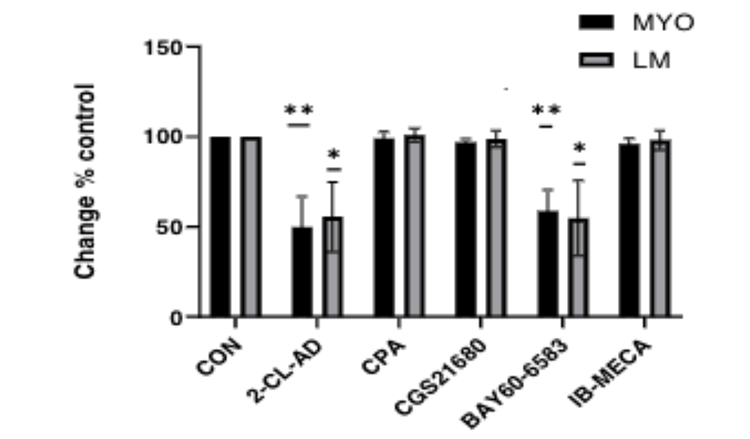Advantages:
- Our investigators have identified restricted patterns of CD73 expression that broadly implicate extracellular adenosine as a key mediator for the growth of uterine leiomyomas.
- Targeting activity at Type2B adenosine receptors could be potentially used as a strategy to shrink leiomyomas while avoiding potential limitation and systemic side effects associated with parental adenosine administration.
- Identifies specific subsets of cells within the leiomyoma complex that appear to play a key role in regulating intra-tumoral inflammation and the remodeling of extracellular matrix that ultimately render leiomyomas resistant to current options for medical management.
Business Summary:
Uterine leiomyomas are benign monoclonal neoplasms that originate in the human myometrium. Clinically, leiomyomas are a frequent cause of infertility, pelvic pain and abnormal uterine bleeding and are the most common indication for hysterectomy in the United States (>300,000/year). CD73 (ecto-5’-nucleotidase) plays a key role in regulating extracellular levels of adenosine. Its overexpression is a common feature of many human cancers, where it suppresses tumoricidal immune responses. CD73 is also frequently used as a biomarker for mesenchymal stem cells.
Our researchers have found that restricted patterns of CD73 expression are observed in uterine leiomyomas that promote the growth of these tumors by modulating extracellular adenosine concentrations. Their findings indicate that adenosine impacts leiomyoma by specifically modulating activity at Type 2B adenosine receptors which, in turn, inactivate p-AKT/CyclinD1 signaling pathways. Given well-established difficulties with targeting AKT signaling in other tumor types, these observations create unique, non-hormonal options to control growth of uterine leiomyomas that are not only potentially fertility sparing but could be used to alleviate the need for gynecologic surgery.

ADORA2B agonist suppress myometrium and leiomyomas primary cells proliferation.
Desired Partnerships:
- License
- Sponsored Research
- Co-Development